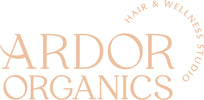Using products with added fragrance tailors our experience to one that’s more enjoyable. Rather than lathering our hair with a mechanical scent, we can inhale plush roses, grounding musk, or a refreshing citrus. Whilst the scent may be pleasant though, the facts are far from it. Fragrance that was once derived purely from nature is now mimicked in a lab to make synthetic fragrance. Considerably cheaper but unlike its original counterpart, can be costly to our health.
There is little information, however, on the materials used within fragrance because they are lumped into “fragrance” “perfume” or “trade secrets” on the label. This is completely legal. They get to make the rules. Hiding a slew of known toxins in a loop-hole.
The origins of the ‘trade secrets’ law came from an era where major fragrance houses insisted on protecting their precious formulas that were derived from flowers and oils. But these pure extractions are long a thing of the past. Now days, these laws allow companies to manufacture nasty knock-off scents that keep their costs down and wave them free of liabilities to people’s health. The concerns on synthetic fragrances though, continue to grow.
The origins of the ‘trade secrets’ law came from an era where major fragrance houses insisted on protecting their precious formulas that were derived from flowers and oils. But these pure extractions are long a thing of the past. Now days, these laws allow companies to manufacture nasty knock-off scents that keep their costs down and wave them free of liabilities to people’s health. The concerns on synthetic fragrances though, continue to grow.
In 2010 the Environmental Working Group tested a few well-known perfumes. Of the seventeen tested many contained types of synthetic musk. This musk ends up in our waterways, soil, and drinking water. With high levels of synthetic musk showing up in woman’s blood. Musk is associated with infertility and ovarian failure. Fragrance is also increasingly cited in triggering migraines and some fragrance depositors have been found in breastmilk.
Within hair care one commonly used class of synthetic chemicals is phthalates. They are used to to give scent longevity and our hair a flexible hold. Phthalates are known endocrine disruptors – they mess with the normal functioning of our hormones. Whilst a small amount is said to be tolerable, EWG found that 75% of products listing ‘fragrance’ contained phthalates - they are in everything from hair care, flooring, plastic toys and so much more – it’s an overload. They have also been linked to a reduction in sperm count and reproductive abnormalities within male lab rats.
Our skin absorbs the majority of what we lather upon it. Our scalps having much higher absorption rates than other areas of our bodies. Whilst the head is also a close neighbour to our nostrils and mouth - a straight pathway to vital areas like our lungs. Therefor when reconsidering our use of products containing synthetic fragrances, hair care jumps to the top of the list. A great place to start.
So how do we avoid synthetic fragrances in haircare? We can avoid products stating ‘fragrance’ on their reverse label and not take a front-facing label stating ‘fragrance free’ to match the ingredients list. However, in a realistic world, it’s about trying our best – especially as we wait on companies to catch up. Dropping even just one product today and replacing it with an alternative is a great step.
So how do we avoid synthetic fragrances in haircare? We can avoid products stating ‘fragrance’ on their reverse label and not take a front-facing label stating ‘fragrance free’ to match the ingredients list. However, in a realistic world, it’s about trying our best – especially as we wait on companies to catch up. Dropping even just one product today and replacing it with an alternative is a great step.
One luscious alternative is essential oils - pure fragrances our bodies can utilise, containing many benefits unique to themselves, including hair care. A post on essential oils is coming soon, watch this space.
So whilst fragrance can liven up a shampooing experience or a de-frizz may coat you in wafts of coconut, remember that these scents are in fact potentially dangerous chemicals. Our modern world is teeming with synthetic fragrance, often in places not even necessary, so keep your eyes and nostrils peeled.
By Gemma Innes in collaboration with write Sian Henderson
References
1. https://www.ewg.org/research/not-so-sexy#.W6tznhMzbVo
2. https://www.ncbi.nlm.nih.gov/m/pubmed/11392369/
3. https://www.ncbi.nlm.nih.gov/pubmed/12442807
4. https://www.ewg.org/news/videos/find-out-ewg-which-toxins-are-contained-various-fragrance-products-used-daily#.W7HvwxMzbVo
1. https://www.ewg.org/research/not-so-sexy#.W6tznhMzbVo
2. https://www.ncbi.nlm.nih.gov/m/pubmed/11392369/
3. https://www.ncbi.nlm.nih.gov/pubmed/12442807
4. https://www.ewg.org/news/videos/find-out-ewg-which-toxins-are-contained-various-fragrance-products-used-daily#.W7HvwxMzbVo





